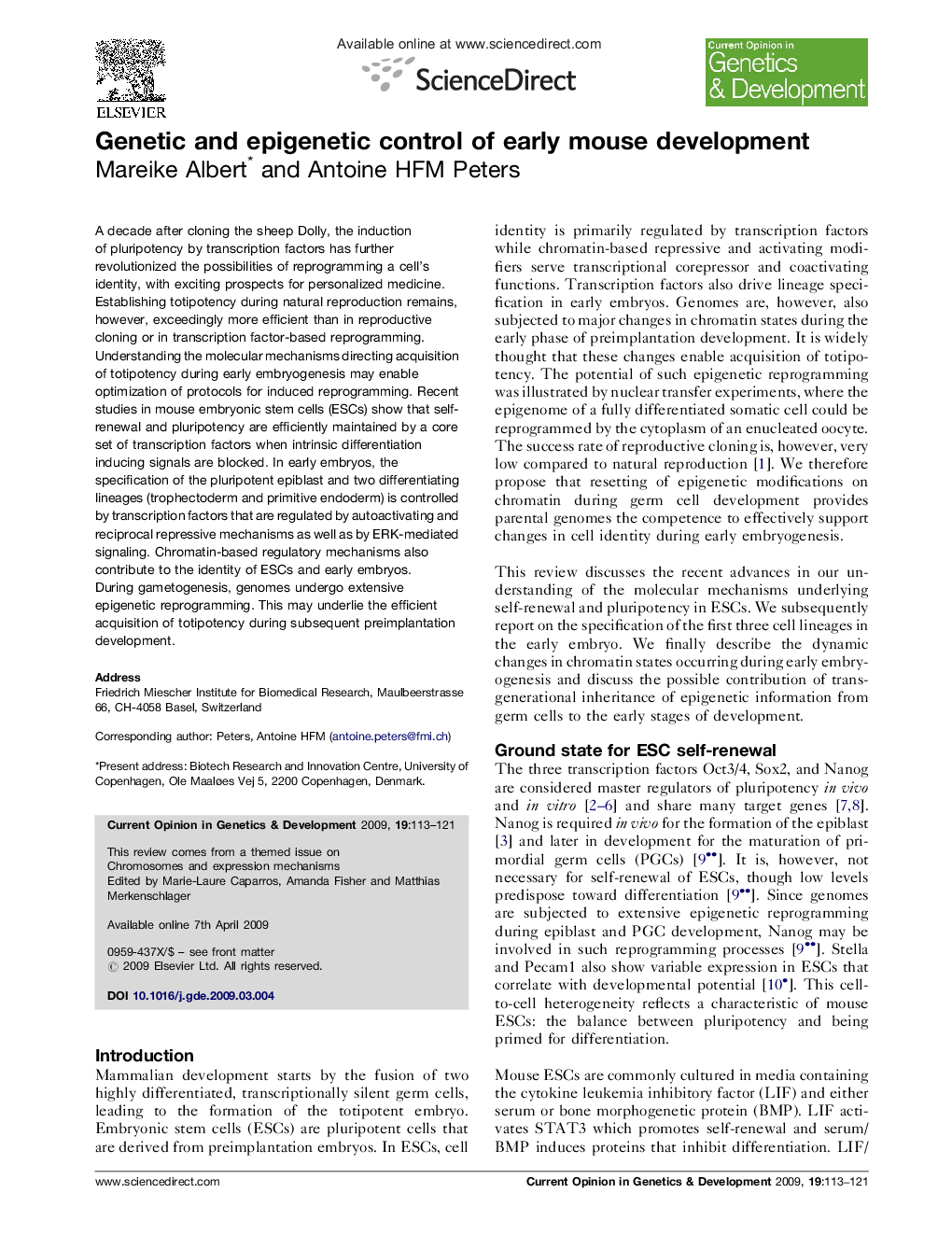| کد مقاله | کد نشریه | سال انتشار | مقاله انگلیسی | نسخه تمام متن |
|---|---|---|---|---|
| 2785228 | 1153936 | 2009 | 9 صفحه PDF | دانلود رایگان |

A decade after cloning the sheep Dolly, the induction of pluripotency by transcription factors has further revolutionized the possibilities of reprogramming a cell's identity, with exciting prospects for personalized medicine. Establishing totipotency during natural reproduction remains, however, exceedingly more efficient than in reproductive cloning or in transcription factor-based reprogramming. Understanding the molecular mechanisms directing acquisition of totipotency during early embryogenesis may enable optimization of protocols for induced reprogramming. Recent studies in mouse embryonic stem cells (ESCs) show that self-renewal and pluripotency are efficiently maintained by a core set of transcription factors when intrinsic differentiation inducing signals are blocked. In early embryos, the specification of the pluripotent epiblast and two differentiating lineages (trophectoderm and primitive endoderm) is controlled by transcription factors that are regulated by autoactivating and reciprocal repressive mechanisms as well as by ERK-mediated signaling. Chromatin-based regulatory mechanisms also contribute to the identity of ESCs and early embryos. During gametogenesis, genomes undergo extensive epigenetic reprogramming. This may underlie the efficient acquisition of totipotency during subsequent preimplantation development.
Journal: Current Opinion in Genetics & Development - Volume 19, Issue 2, April 2009, Pages 113–121